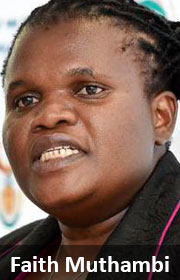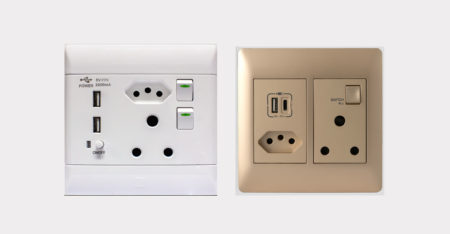 In 2008, the national treasury allocated an amount of R2,4bn for the purchase of set-top boxes for 5m indigent households as part of the digital migration project. This funding has, however, been rolled over each year because of the delay in rolling out the project.
In 2008, the national treasury allocated an amount of R2,4bn for the purchase of set-top boxes for 5m indigent households as part of the digital migration project. This funding has, however, been rolled over each year because of the delay in rolling out the project.
We have since learnt, from Statistics South Africa, that the number of indigent households who qualify for these set-top boxes has risen to more than 6m. This has elicited some spirited criticism against government’s management of this project, with our opposition colleagues pointing out that the money is insufficient to cover all of the indigent families.
Yes, the number of indigent families has gone up. And this will have an impact on the purchasing budget. However, the point that the critics are missing is that we cannot go and ask treasury to increase the budget allocation that was set aside in 2008 without having spent some of it and in that process getting a clearer picture on exactly how much the project is going to cost realistically in today’s money.
Government could not purchase any set-top boxes while it had a legal cloud hanging over its head due being taken to court over this very issue of set-top boxes. Now that this legal matter is out of the way, we are free to pursue the implementation of the digital migration programme. The programme is exciting and will see our country reaching some critical broadcasting milestones.
One of these is spectrum refarming, which marks the biggest evolution of broadcasting services since the introduction of television in South Africa in 1975. The digital dividend to be released for telecommunications will open the way for the delivery of new broadband services.
Government is committed to ensuring that all economic opportunities resulting from this project are explored and fully exploited to the benefit of South Africans, especially young people.
Electronic manufacturers and producers of broadcasting content are just some of the sectors that stand to benefit. We need a South Africa that is capable of producing its own goods and services. The growth of the film and documentary space is not only key to the country’s arts industry, but it is important for our heritage — it gives us an opportunity to narrate our stories to local and even international audiences using our own words and images. The digital migration project will infuse growth into these sectors.
I’m in consultation with my colleagues at the department of trade & industry to ascertain how best we can build a sustainable electronics manufacturing sector beyond just set-top boxes. If one can use the analogy of starter, main course and dessert, the manufacturing of set-top boxes is just the starter dish. The main course should be the manufacturing of television sets (we are engaging the South African Bureau of Standards to finalise the standards and specifications for integrated digital TVs). The dessert should be other communication devices. South Africa’s GDP fell by a seasonally adjusted and annualised rate of 1,3% in the second quarter. I have no doubt that if the electronics manufacturing sector is resuscitated, it will make a small but meaningful contribution towards economic growth.

The implementation of the digital migration project will further provide great potential to restructure South Africa’s ICT infrastructure in support of the National Development Plan’s goals of stimulating growth in the sector. The plan’s infrastructure development agenda calls for efficient information infrastructure that promotes economic growth and greater inclusion. This requires a stronger broadband and telecoms network that is affordable to all. This ecosystem of digital networks, services, applications, content and devices will connect public administration with active citizens and promote economic growth and competitiveness. Public services and educational and information products will be that much easier to access.
The digital migration project requires an appreciation of the big picture. It has the potential to make a difference in the lives of many, including South Africa’s indigent population, who we dare not forget or leave behind. It is our intention as government to make sure they are not left behind and we are prepared to be judged on this undertaking.
- Faith Muthambi is the minister of communications




